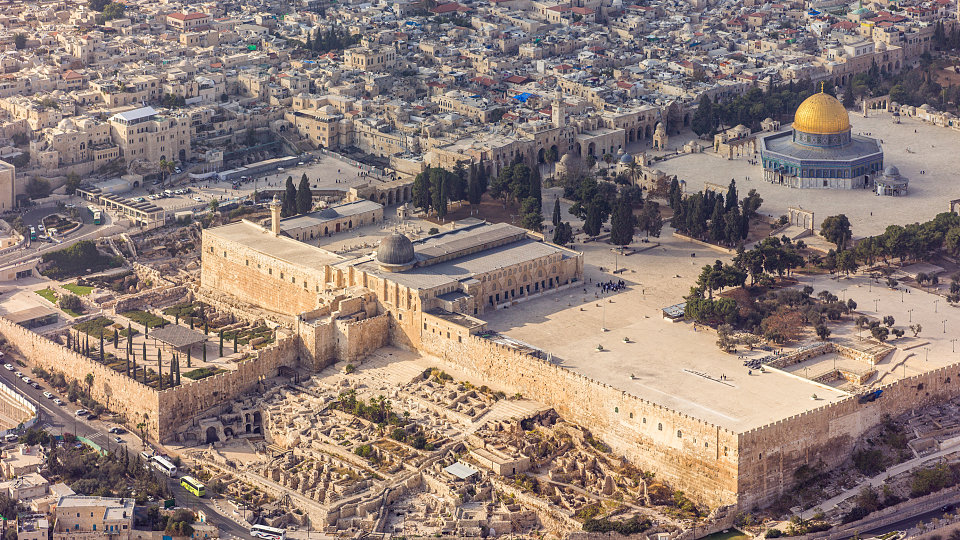Australia/Israel Review
Editorial: A Display of Principle
Dec 19, 2018 | Colin Rubenstein

As 2019 dawns, we unfortunately cannot reflect on the year just passed as a peaceful one for Israel.
Between the ever-present Iranian threat; weekly border skirmishes with Hamas escalating into incendiary and then indiscriminate saturation rocket attacks on civilian populations; terror stabbings and shootings in Israel and the West Bank; and the threat on the northern border from Hezbollah’s huge missile arsenal and terror tunnels, Israel has continued to face daunting tests in 2018.
But there were signs of light amid the darkness: a very supportive US Administration showed its determination to reset the narrative and defy unhelpful shibboleths; growing ties between Israel and some of its Arab Gulf neighbours as they cooperate against a common enemy, Iran; and domestically, Israel maintaining an unparalleled record of strong economic growth.
Another sign of light in 2018 was the Australian Government’s approach towards Israel.
Following the swearing in of Scott Morrison as Prime Minister, there was a significant shift in the Australian Government’s already strong commitment to helping Israel to progress toward a two-state outcome and in taking up a principled and activist role in the United Nations.
This culminated in the Government’s review of Australia’s policies towards Jerusalem. While much was made of the timing of Morrison’s announcement on the review in the middle of a bruising by-election in Wentworth, it was a brave and bold move by a Prime Minister who is prepared to rethink Australia’s national interest in the wake of changing international circumstances.
The Jewish people trace their presence in Jerusalem back for millennia, as any visit to the archaeological sites in the vicinity of the Old City will attest.
Israel’s seat of government, its judiciary and its bureaucracy are all in west Jerusalem and have been since 1950.
West Jerusalem is not designated by the UN as occupied territory. All serious two-state peace proposals nominate west Jerusalem as Israel’s capital. In 1971, nearly half of all countries with embassies in Israel situated them in west Jerusalem. The US Congress, since 1995, and successive US presidents, since Bill Clinton, promised to recognise Jerusalem as Israel’s capital, as do other major powers, including Russia.
It is in this context that Morrison took the decision to review and ultimately realign Australia’s policy regarding Jerusalem.
The Australian Government’s willingness to politely but firmly disagree with the politically-motivated protests of regional neighbours – who themselves do not even recognise Israel and thereby lack credibility on the issue – plus a loud chorus of media critics, offer a hopeful glimpse of genuine principle and self-assurance.
Couple this with Morrison’s announcement of an additional review on Australia’s policies towards Iran, and the Prime Minister delivered on Australia’s claim to be a state that stands by its allies and stands up to those who spread terror, either directly or through proxies. More than this, it does so without being cowed by stale conventional wisdom or fear of giving offence or influenced by the defeatist attitude which insists Australia can make no difference so should just quietly conform to avoid making waves.
Under both Morrison and his predecessor Malcolm Turnbull, Australia’s principled approach on Israel has echoed loudly in the halls of the United Nations – where it is badly needed.
In March this year, during its first meeting as a member of the UN Human Rights Council (UNHRC), Australia voted against all five resolutions listed under the notorious Item 7 on the troubled council’s annual agenda. Item 7 is the only UNHRC standing agenda item dedicated to just one country – no prizes for guessing which country it singles out.
A strongly worded statement from the Australian Mission to the United Nations stated: “It is our firm view that a separate agenda item focused on a single country situation – in this case Israel – is inappropriate. It reflects inherent bias in the council.” The statement continued, “The one-sided resolutions introduced in the Human Rights Council under Item 7 each year do nothing to bring Israel and the Palestinians back to the negotiating table.”
A couple of months later, after weeks of violence on the Gaza-Israel border as a result of the Hamas and Palestinian Islamic Jihad sponsored “March of Return”, Australia again rejected a blatant UN attempt, this time in the General Assembly, to blame Israel.
This principled approach was maintained in the General Assembly on Dec. 6 when Australia voted to condemn Hamas’ behaviour, notably its rocket attacks towards civilian populations in Israel and its use of resources to construct military infrastructure, rather than support Gazans.
Astonishingly, that vote was defeated despite a majority of UN members voting to condemn Hamas, because a cynical ploy by the Arab League amended procedures so that a two-thirds majority was required for the motion to pass. Very disappointingly, New Zealand was among the UN members who contributed to this disreputable manoeuvre.
Foreign Minister Marise Payne told The Australian after the vote “Australia condemns Hamas’ activities in the strongest possible terms. Australia’s principled position in the United Nations has been consistent.”
Indeed it has. During the annual November UN General Assembly voting charade that sees Israel condemned many times more than all other countries put together, Australia changed its vote to “no” on three anti-Israel resolutions on which it had previously abstained. It was a shift that brought Australia into line with the US, Canada and Israel in signalling to the world that enough is enough.
And a world where the UN General Assembly cannot even bring itself to condemn Hamas and its blatant terrorism one time – after condemning Israel 21 times this year, and 124 times since 2012 – is a world in which the sort of principled leadership currently being displayed by Australia has never been more needed.
Tags: Australia, Iran, Israel, Palestinians, United Nations






